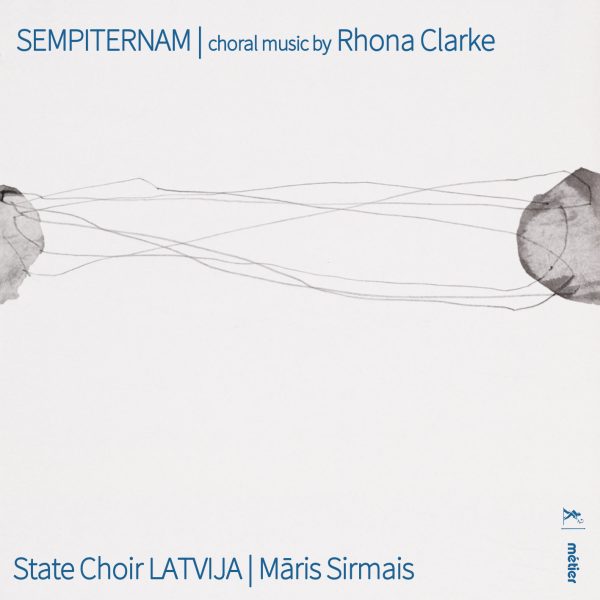Fanfare
Rhona Clarke is an Irish composer, born in 1958, who has a particular affinity for choral music, which began in her teens when she joined the Lindsay Singers, a women’s choir in Dublin. Clarke later sang with various university choirs and with Gaudete, a professional chamber choir. This disc, titled Sempiternam, features choral music composed over a span from 1991 to 2020. Although one can hear changes in her compositional style over that time, there are some fundamental constants throughout. The music is largely tonal, emotionally expressive, and lyrical in nature. Clarke fits into the British choral tradition, although this should not be taken to imply that she lacks her own voice. Her music has elements of medieval influence as well as touches of Modernism.
The major work here is the Requiem, a 20-minute setting of “Introit,” “Lux aeterna,” “Pie Jesu,” and “In Paradisum.” The music demonstrates the breadth of her style as well as anything. There is a distinctly Modernist feel to “Lux aeterna,” followed by an ethereal “Pie Jesu” that recalls medieval chant. Most of the works on the program are for a cappella chorus, but the occasional dramatic use of percussion provides dramatic variety. Ave atque vale opens with an incisive drum stroke, which is repeated throughout, an almost Mahlerian effect from the opening of the finale of his 10th Symphony.
A strength of this program is its variety. The gaiety of “Make We Merry,” (one of the Three Carols on Medieval Texts), the ethereal beauty of Clarke’s setting of Mary Elizabeth Frye’s “Do Not Stand at My Grave and Weep,” and the macabre humor of The Old Woman are all different yet all clearly from the pen of the same composer. Clarke’s skill in writing for massed voices comes through consistently, whether setting religious or secular texts.
She is helped by the lovely performances. Māris Sirmais and State Choir LATVIJA sing with beauty of tone, precise intonation, and clear diction. Métier’s inclusion of texts and translations is another plus, as are Mark Fitzgerald’s informative notes and Métier’s fine recorded sound.
This was a very pleasing discovery for me, a recording I shall return to often.
@divineartrecordingsgroup
A First Inversion Company
Registered Office:
176-178 Pontefract Road, Cudworth, Barnsley S72 8BE
+44 1226 596703
Fort Worth, TX 76110
+1.682.233.4978












